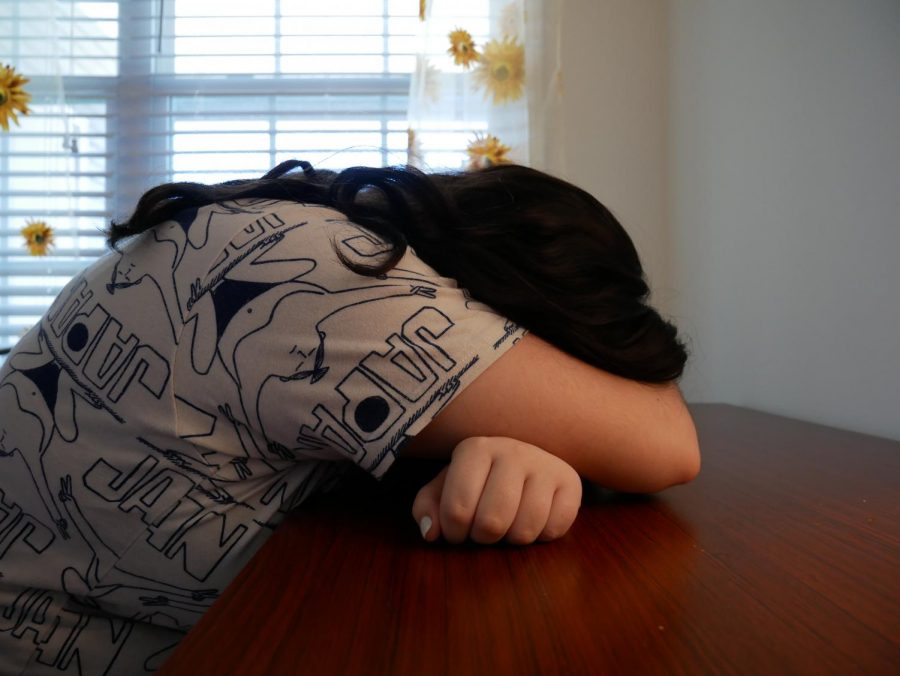Suicide Prevention In 2020
Sophomore Kate Patrick with her head down.
Every year, during the week of September from 6-12 is known as suicide prevention week. This week is in place to bring awareness to this problem that is highly overlooked. The romanticization of suicide in social media now is beyond what it should be. The act of harming oneself is no longer a personal battle. Others around especially on social media abuse the power they have to influence young lives by exaggerating this mental illness into something it’s not. Suicide is a daily struggle for a lot of people.
Suicidal thoughts and actions are part of a mental disorder that causes people to believe you don’t truly belong here. These are very serious matters. According to The American Foundation for Suicide Prevention https://afsp.org/suicide-statistics/,on average, there are around 132 suicides per day. Others around them don’t notice it. There are key signs that you can easily identify to help others who are struggling.
Others who don’t struggle feel the need to post about it glorifying not only suicide but eating disorders, anxiety, and other serious mental illnesses. There are accounts solely dedicated to pointing out how badly others look. These accounts are causing the deterioration of their viewers’ health, and convince them they need to change. There are mainstream social media influencers that “pull pranks” on their friends or significant others by pretending that they have committed suicide and posting it in hopes of views and praise. These offensive videos and posts can send the wrong message that suicide isn’t as bad as it is. They are glorifying something so wrong. The influencers get praise and likes and they get the false sense into believing that they did the right thing. And go on to posting more videos about them and never apologizing.
It is important that everyone looks after their friends now in quarantine more than ever because mental health is something so important to keeping someone alive and healthy.
Some signs of a suicidal friend, according to standfordchildrens.org https://www.stanfordchildrens.org/en/topic/default?id=teen-suicide-learning-to-recognize-the-warning-signs-1-1696, are noticeable signs of changing in eating, doing worse in school, panicky behavior, giving away prized possessions, and violent behavior. If you ever are even slightly concerned for someone’s safety, please let an adult know and make sure you are there for them at all times. This illness goes unnoticed most of the time and is invisible and does terrible things to a person’s mental health the suicide hotline number (800) 273-8255.

Hello, My name is Sonja Castro. I am a sophomore at Dunbar and this is my first year with Lamplighter, and I am really excited to get started. I am a...























